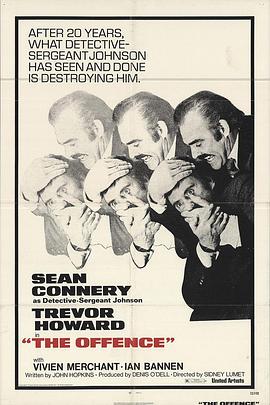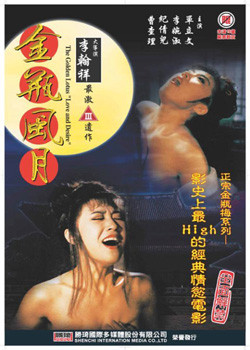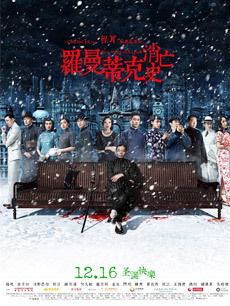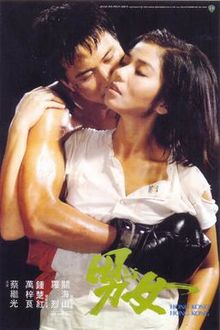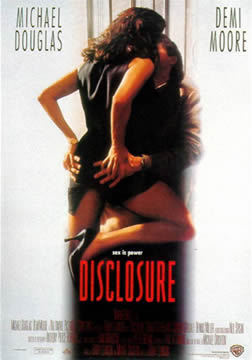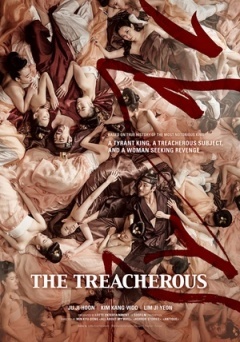突击者
- 主演:
- 肖恩·康纳利,特瑞沃·霍华德,维维恩·莫坚特,伊安·邦纳,彼得·鲍勒斯
- 备注:
- 正片
- 类型:
- 剧情片
- 导演:
- 西德尼·吕美特
- 年代:
- 1973
- 地区:
- 英语
- 语言:
- 英语
- 更新:
- 2023-08-26 23:37
- 简介:
- 康纳利扮演一个20年警龄的刑事士官长约翰逊,他负责调查镇子上最近发生的三起猥亵女童的案件。很快有一个小女孩失踪,警队展开了地毯式的搜索,约翰逊在树林里发觉了女孩。当天晚上,两名巡逻警员发觉了一个名叫巴克斯特的衣冠不整者,浑身是泥,他被怀疑是猥亵犯被扣留起来。约翰逊赶回.....详细
突击者剧情简介
剧情片《突击者》由肖恩·康纳利,特瑞沃·霍华德,维维恩·莫坚特,伊安·邦纳,彼得·鲍勒斯主演,1973年英语地区发行,欢迎点播。
康纳利扮演一个20年警龄的刑事士官长约翰逊,他负责调查镇子上最近发生的三起猥亵女童的案件。很快有一个小女孩失踪,警队展开了地毯式的搜索,约翰逊在树林里发觉了女孩。当天晚上,两名巡逻警员发觉了一个名叫巴克斯特的衣冠不整者,浑身是泥,他被怀疑是猥亵犯被扣留起来。约翰逊赶回警局后凭直觉断定是巴克斯特所为,用极端残暴的方式将其殴打致死。事后,在刑事督察长卡特怀德的盘问下,约翰逊潜藏在脑袋里的念头开始迸发。
{if:"Instead of reflecting on the Good and Evil, I’d rather call out two technical aspects of the film that appeal to me. First, the cinematography: (1) the unsettling optical aperture effect of the beginning (suggesting police work---and Johnny’s existence---“in the eyes of the public”?). (2) The cold, damp ambient worthy of Antonioni (“Blow-Up”): that long, speechless observation of frenzied parents picking up schoolchildren. (3) Painterly quality: after Johnny is taken away, his wife sitting alone, against windows opening to a balcony above which the lead-grey sky is strangely illuminated with surreal, apocalyptical light. Worthy of Munch.Second, the speech. Compare Baxter in interrogation and Johnny at home. Johnny’s talk with his wife: bitter, despairing, embattled, impotent, often cut short by the speaker’s own recognition of its futility, his speech is half Pinter and half Shakespeare. Baxter, on the other hand, is a very articulate Satan (no wonder Bannen got an Oscar). He’s clever, nonchapant, gleeful --in turn with vulgar innuendos and subtle sophism; just the sort a brute like Johnny would want to exterminate/ worship. Baxter is everything that Johnny is not, for he’s not shakled by residual humanity as Johnny has been. Apart from the visual/literal accomplishments, Lumet’s “Offence” can be read as a Nietschien characterization of evil: “When you stare into an abyss for a long time, the abyss also stares into you”. One is still tempted to ask, however, what is the point of all these raw, nervy torments? "<>"" && "Instead of reflecting on the Good and Evil, I’d rather call out two technical aspects of the film that appeal to me. First, the cinematography: (1) the unsettling optical aperture effect of the beginning (suggesting police work---and Johnny’s existence---“in the eyes of the public”?). (2) The cold, damp ambient worthy of Antonioni (“Blow-Up”): that long, speechless observation of frenzied parents picking up schoolchildren. (3) Painterly quality: after Johnny is taken away, his wife sitting alone, against windows opening to a balcony above which the lead-grey sky is strangely illuminated with surreal, apocalyptical light. Worthy of Munch.Second, the speech. Compare Baxter in interrogation and Johnny at home. Johnny’s talk with his wife: bitter, despairing, embattled, impotent, often cut short by the speaker’s own recognition of its futility, his speech is half Pinter and half Shakespeare. Baxter, on the other hand, is a very articulate Satan (no wonder Bannen got an Oscar). He’s clever, nonchapant, gleeful --in turn with vulgar innuendos and subtle sophism; just the sort a brute like Johnny would want to exterminate/ worship. Baxter is everything that Johnny is not, for he’s not shakled by residual humanity as Johnny has been. Apart from the visual/literal accomplishments, Lumet’s “Offence” can be read as a Nietschien characterization of evil: “When you stare into an abyss for a long time, the abyss also stares into you”. One is still tempted to ask, however, what is the point of all these raw, nervy torments? "<>"暂时没有网友评论该影片"}
@豆瓣短评
Instead of reflecting on the Good and Evil, I’d rather call out two technical aspects of the film that appeal to me. First, the cinematography: (1) the unsettling optical aperture effect of the beginning (suggesting police work---and Johnny’s existence---“in the eyes of the public”?). (2) The cold, damp ambient worthy of Antonioni (“Blow-Up”): that long, speechless observation of frenzied parents picking up schoolchildren. (3) Painterly quality: after Johnny is taken away, his wife sitting alone, against windows opening to a balcony above which the lead-grey sky is strangely illuminated with surreal, apocalyptical light. Worthy of Munch.Second, the speech. Compare Baxter in interrogation and Johnny at home. Johnny’s talk with his wife: bitter, despairing, embattled, impotent, often cut short by the speaker’s own recognition of its futility, his speech is half Pinter and half Shakespeare. Baxter, on the other hand, is a very articulate Satan (no wonder Bannen got an Oscar). He’s clever, nonchapant, gleeful --in turn with vulgar innuendos and subtle sophism; just the sort a brute like Johnny would want to exterminate/ worship. Baxter is everything that Johnny is not, for he’s not shakled by residual humanity as Johnny has been. Apart from the visual/literal accomplishments, Lumet’s “Offence” can be read as a Nietschien characterization of evil: “When you stare into an abyss for a long time, the abyss also stares into you”. One is still tempted to ask, however, what is the point of all these raw, nervy torments?
{end if}
